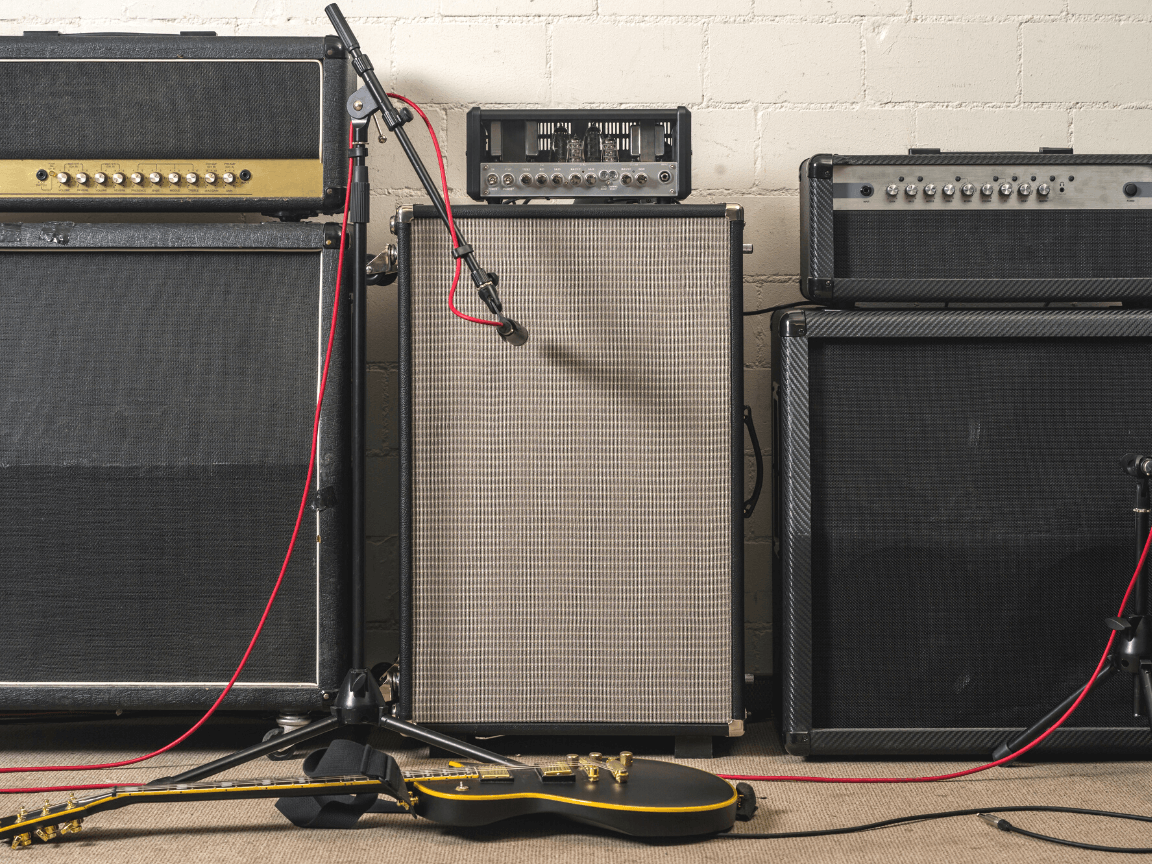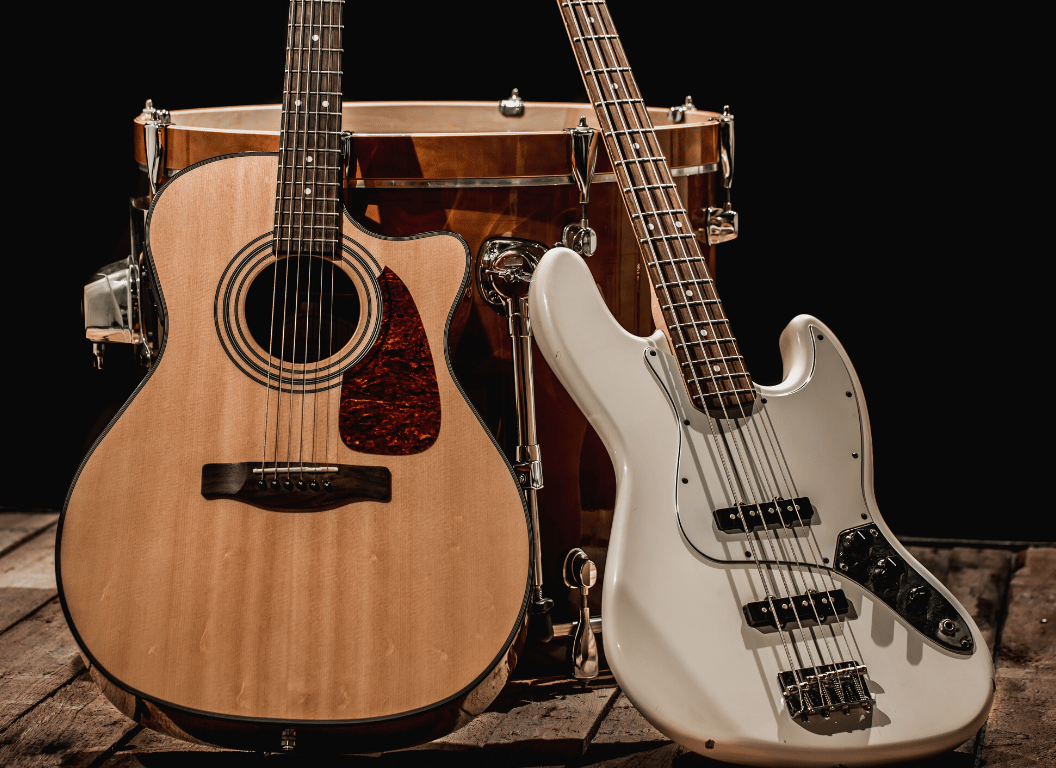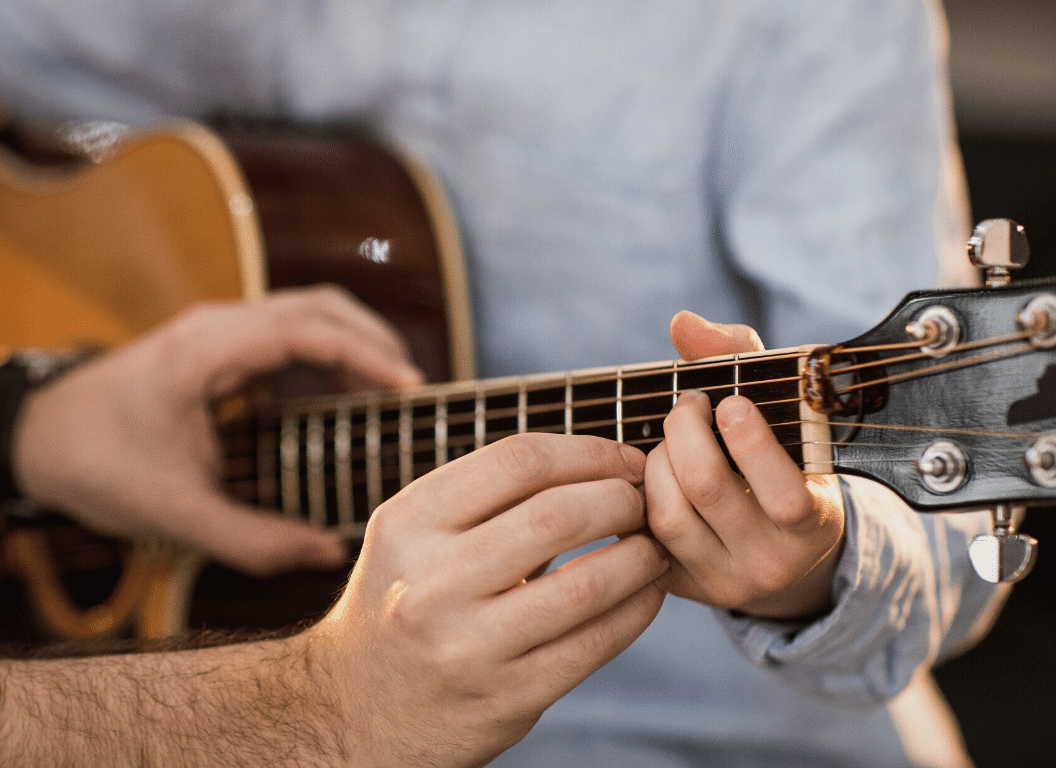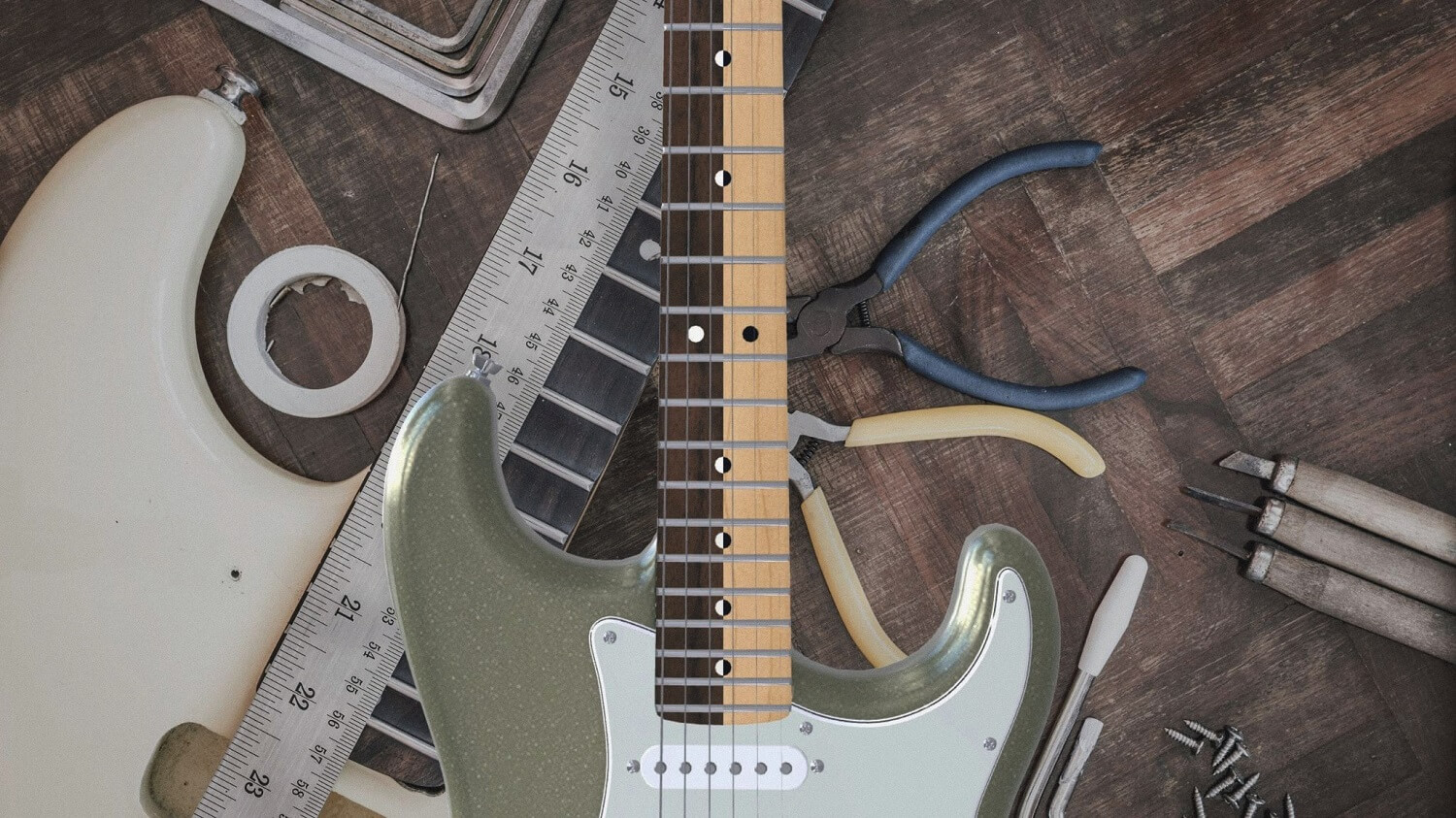Are you a bass player looking to get the most out of your sound? Are you looking to experiment with your sound?
If so, you may be wondering if guitar amps can be used for bass.
The answer is yes – but there are a few things you should know before you plug in.
In this article, we’ll explore the advantages and disadvantages of using a guitar amp for bass, as well as provide some tips on how to get the best sound out of your setup.
Whether you’re a beginner or a seasoned pro, this article will provide you with the information you need to make an informed decision about using a guitar amp for bass.
Table of Contents
- Can guitar amps be used for bass?
- Advantages of Using a Guitar Amp for Bass
- Disadvantages of Using a Guitar Amp for Bass
- Differences in sound between a guitar amp and a bass amp
- Ways to get a better sound from a guitar amp
- Is a bass amp the same as a guitar amp?
- What amps can I use a bass on?
- Do you need a special amp to play bass?
- What is the minimum wattage for a bass amp?
- Do heavy basses sound better?
- Why do bass amps need more wattage?
- Final thoughts
Can guitar amps be used for bass?
Yes, guitar amps can be used for bass. Guitar amps are designed to handle the low frequencies of a bass guitar, and many guitar amps feature a switchable input for both guitar and bass. However, it is important to note that guitar amps are not designed to handle the low frequencies of a bass guitar as well as a bass amp would. Therefore, if you are looking for the best sound quality for your bass guitar, it is recommended to use a bass amp.
Additionally, guitar amps will not be able to provide the same power as a bass amp, so if you need more volume or power for your live performance, it may be best to invest in a bass amp.
It will always depend on the type of sound you are trying to achieve, and there is no one-size-fits-all solution.
But in general, if you are looking for a gritty, overdriven sound or an experimental sound with strange effects and textures, a guitar amp could be a great option.
You could also use effects pedals, and other gear to supplement your bass tone, so it won’t 100% depend on the amp you choose.
Advantages of Using a Guitar Amp for Bass
Even though is not recommended, some bass guitar players may find it beneficial to use a guitar amp for their instrument.
Let’s take a look at some of the advantages:
1. Save money and reduce cost of gear
Using a guitar amp for bass can be a great choice for many musicians that are starting out.
While bass amps can be quite expensive, guitar amps are much more affordable and offer some of the same features at a fraction of the cost.
At the end of the day, if your ultimate goal is to play and not really pay attention to your tone, then a guitar amp will work just fine.
And ultimately, you can save quite a bit of money by going the guitar amp route.
2. They’re more portable and easy to transport
Additionally, guitar amps are generally much more portable than bass amps, making them a great choice for musicians who need to travel with their equipment.
If you’ve seen a guitar amp in person, you’ll know that many of them are not only much smaller than bass amplifiers but also quite a bit lighter.
This makes it much easier to transport your gear from gig to gig or even take it with you on vacation if necessary.
Bass amps are bulkier and heavier, and usually require more space to transport, so if this is something that’s important to you, then a guitar amp is definitely the way to go.
3. They can offer additional features
Let’s be real, guitar amps usually come with more knobs and features compared to bass amps.
This can be great for those who want to experiment with their tone or just want more control over how they sound.
The additional features that a guitar amp provides can also help you find a unique sound, which is something that many bass players strive for.
Even though bass players are not known to carry many effects pedals, having more control over your sound is always a plus.
Nobody ever sounded bad by using some compressor on their instrument, for example. 🙂
Disadvantages of Using a Guitar Amp for Bass
Okay, so now that we’ve discussed the advantages of using a guitar amp for bass let’s take a look at some of the disadvantages.
1. Very low power output
One of the main disadvantages is that guitar amps typically have lower power outputs than bass amps, which can limit the amount of volume and headroom you have available.
If you’re thinking of going the guitar amp route, you’ll want to make sure that it can handle the wattage of your bass instrument.
Otherwise, you’re just going to end up with a muddy and distorted sound and if you play live, it will be almost impossible to get the volume you need.
2. They can’t handle low frequencies properly
Another issue is that guitar amps are not really designed to handle the low-end frequencies of a bass instrument.
Because of this, some of the lower tones may end up getting lost in the mix and your sound won’t have much clarity or punch.
So if you’re looking for a clear and tight sound, then it’s probably best to invest in a bass amp.
3. Poor sound quality at higher volumes
Lastly, guitar amps tend to have poorer sound quality at higher volumes than bass amps do.
If you like playing with distortion and overdrive and want to get the most out of your bass, then you’ll probably want to invest in a decent bass amp.
But even then, if you don’t have a great room to play in, then you may end up with some harshness and feedback at higher volumes that you won’t be able to control.
Differences in sound between a guitar amp and a bass amp
When it comes to the differences in sound between a guitar amp and a bass amp, the most notable distinctions can be heard in all low-end, midrange, and high-end.
Let’s take a look at each of these frequency ranges:
1. Low end
In the low end, a guitar amp typically has a tighter and more focused sound, while a bass amp has a fuller, rounder sound.
This causes the bass to stand out more, while to the guitars, it makes them have a consistent tone.
In most mixes, the bass will be heard more clearly and it will have a greater impact on the overall sound.
2. Midrange
The midrange frequencies are where a lot of the action happens in both guitar and bass amps, so they’re very important.
A guitar amp typically has a brighter and more cutting sound, while a bass amp tends to be darker and warmer.
This helps the two instruments fit together in a mix, with the guitar providing definition and clarity, while the bass provides warmth and depth.
In a guitar amp, you’ll often hear more mids punch and clarity, while in a bass amp, they will be more subdued.
3. High end
The high frequencies are where the two amps really differ in sound.
A guitar amp typically has a brighter and edgier sound, while a bass amp tends to be smoother and more laid-back.
This helps provide a balance between the two instruments, making them both easier to hear in a mix.
The high end of a guitar amp also tends to be more easily distorted, giving it an extra level of crunch and presence.
Guitar amps are designed to emphasize the higher frequencies, while bass amps are designed to provide a full-bodied sound with plenty of low-end punch.
Ways to get a better sound from a guitar amp
1. EQ settings
One of the most effective ways to get a better sound from a guitar amp is to adjust the EQ settings.
The EQ settings allow the player to adjust the sound of the amplifier, such as adjusting the bass or treble levels and lowering any feedback or hum.
Generally, adjusting the EQ settings will produce a much better sound than just relying on the factory-set settings.
This will allow you to really dial in the sound you’re looking for and make any tone adjustments you need.
2. Effects pedals
If you’re looking to play bass on your guitar amp, effects pedals can really help you to get a better sound.
Effects pedals such as a compressor, overdrive, and distortion can help to boost the sound of your guitar amp, giving you more options when it comes to creating a unique tone.
Also, some effects pedals can help to reduce noise, which can be a great way to improve your overall sound.
Is a bass amp the same as a guitar amp?
No, a bass amp is not the same as a guitar amp.
While both are designed to amplify the sound of their respective instruments, they are built differently to accommodate the unique needs of each instrument.
A bass amp is designed to emphasize the lower frequencies of the bass guitar, while a guitar amp is designed to emphasize the higher frequencies of the guitar.
Bass amps are typically larger and more powerful than guitar amps, as bass guitars require a greater amount of power to produce their sound.
Bass amps also generally have more controls than guitar amps, allowing the player to adjust the tone more precisely.
Additionally, bass amps often contain features such as built-in effects, graphic equalizers, and direct outputs for recording.
What amps can I use a bass on?
When it comes to choosing an amp for your bass, there are a few different options to consider.
If you’re looking for a classic tube amp, then you’ll want to look for models from brands like Ampeg, Fender, and Marshall.
These amps are known for their warm, full-bodied sound and are great for playing classic rock, jazz, and blues.
If you’re looking for something a bit more modern, then you might want to consider digital modeling amps like those from Line 6, Hartke, and Peavey.
These amps offer a wide range of sounds and effects, and are great for playing funk, metal, and other modern genres.
If you’re looking for something a bit more portable, then you might want to look into a combo amp from brands like Orange, Gallien-Krueger, and Markbass.
These amps are great for small gigs and rehearsals, and are usually lightweight and easy to transport.
Do you need a special amp to play bass?
Whether or not you need a special amp to play bass depends on the type of music you’re playing and the sound you’re going for.

Generally, bass guitars require more power than regular guitars and will need an amp that can handle the low frequencies of the bass.
- If you’re playing in a band or in a larger venue, you’ll likely need an amp that can provide more power and volume.
- If you’re playing at home or in a small venue, you can get away with a smaller amp.
Some bassists prefer to use a combo amp, which combines the amp and speaker into one unit, while others prefer to use a separate amp and speaker.
Ultimately, it’s up to you and what type of sound you’re trying to achieve.
What is the minimum wattage for a bass amp?
When it comes to bass amps, the minimum wattage you should look for is at least 100 watts for the most part.
This is because bass amps require more power to produce a good sound than a guitar amp does.
With 100 watts, you will be able to get a decent sound in a small venue, such as a practice room or small club.

However, if you plan on playing in larger venues, you should look for an amp with at least +200 watts of power.
This will ensure that your sound is heard and doesn’t get lost in the mix.
Additionally, if you plan on playing with a band, you should look for an amp with at least 300 watts of power.
This will ensure that your sound is heard clearly and won’t be overpowered by the other instruments.
Do heavy basses sound better?
Generally speaking, heavier basses tend to have a deeper and fuller sound, but this can also come at the cost of some clarity and articulation.
If you’re looking for a sound that has a lot of punch and power, then a heavier bass might be the right choice for you.

However, if you’re looking for a more articulate and nuanced sound, then a lighter bass might be the better option.
Ultimately, it’s all about finding the right balance between weight and sound quality that works for you.
Why do bass amps need more wattage?
Bass amps need more wattage than other amps because bass instruments have a much lower frequency range than other instruments.
This means that bass notes require more power to be heard clearly and accurately.

Additionally, bass amps need to be able to handle the low frequencies without distorting or losing clarity.
On top of that, they also need to be able to handle the sudden, loud dynamic changes that bass instruments can produce.
All of these factors mean that bass amps need more wattage than other amps in order to accurately reproduce the low frequencies and dynamic changes of a bass instrument.
Final thoughts
Overall, it is clear that guitar amps can be used for bass, but it is not the same as using a bass amp.
While the sound may be similar, bass amps are designed specifically for the low-end frequencies that bass guitars produce, and guitar amps are designed for higher-end frequencies.
Additionally, guitar amps may not have enough power to adequately amplify a bass guitar.
While guitar amps can be used for bass, it is important to consider the sound quality, power, and size of the amp before making a decision.
Ultimately, the decision to use a guitar amp for bass is a personal one, and it is important to consider all of the factors before making a purchase.

More than 10 years of experience playing and writing about guitars! When not writing, I can be found strumming away some Johnny Cash tunes. Favorite all time guitar is the Gibson Les Paul. #TeamGibson




